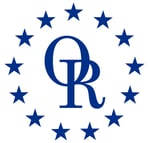 Old Republic Surety regional vice president Darrel Lamb, CPCU, AFSB, often talks about the importance of trust in the surety business – especially on the contract side where trust is essential to establishing long-term relationships. Darrel recently had an opportunity to tell construction leaders about the “triangle of trust” in an article he wrote for Construction Executive magazine.
Old Republic Surety regional vice president Darrel Lamb, CPCU, AFSB, often talks about the importance of trust in the surety business – especially on the contract side where trust is essential to establishing long-term relationships. Darrel recently had an opportunity to tell construction leaders about the “triangle of trust” in an article he wrote for Construction Executive magazine.
Surety is frequently defined as a contract between three parties: the principal (contractor), the obligee (owner of the project) and the surety. But, as Darrel explains, there’s another, equally important triangle: the principal, the surety agent and the surety.
As Darrel writes, “This triangle of trust is what powers construction companies to the next level, increasing their capacity to take on new and bigger projects.”
The hallmarks of a trust-based surety relationship are mutual respect, open communication, honesty and integrity. Sureties and agents that operate at a high level of trust are more likely to share information and work together to help the contractor grow.
The surety becomes a trusted partner and advocate for the contractor, while the surety agent serves as an advisor and facilitator to meet the contractor’s bonding needs. As Darrel notes, “Without the agent, the surety has no link to the contractor.”
See Related: The Independent Agent’s Role in the Surety ‘Triangle of Trust’
Here are some key points about trust from the article to keep in mind:
- Trust turns individual interest into mutual interest.
- Trust occurs at the personal level.
- Trust isn’t transactional.
- Trust engenders understanding and respect for the other’s role.
- Trust allows partners to be open and frank.
- Trust takes time.
Trust is an essential ingredient in surety. To learn more about creating high-trust relationships, see “The Triangle of Trust” in the April 2023 issue of Construction Executive.
Want more Construction Related Links?
 Old Republic Surety regional vice president Darrel Lamb, CPCU, AFSB, often talks about the importance of trust in the surety business – especially on the contract side where trust is essential to establishing long-term relationships. Darrel recently had an opportunity to tell construction leaders about the “triangle of trust” in an article he wrote for
Old Republic Surety regional vice president Darrel Lamb, CPCU, AFSB, often talks about the importance of trust in the surety business – especially on the contract side where trust is essential to establishing long-term relationships. Darrel recently had an opportunity to tell construction leaders about the “triangle of trust” in an article he wrote for 


